
Paul Celan Psalm YouTube
Paul Celan wird am 23. November 1920 als einziges Kind deutschsprachiger Juden in Czernowitz (Bukowina) geboren. 1947 ändert er seinen Familiennamen Antschel in Celan (Anagramm zu Ancel). Nach dem Abitur im Juni 1938 nimmt Celan das Medizinstudium an der Ecole de Médicine in Tours (Frankreich) auf.

(PDF) Analisis comparativo de ocho traducciones del poema Psalm, de Paul Celan
Paul Celan wrote brutal poetry for a barbarous world. By Becca Rothfeld Art by Ryan Inzana. To read the Jewish-Romanian poet and Holocaust survivor Paul Celan is also to read commentators, commentators on commentators, and so on and on, until finally the clatter of exposition overwhelms the oracular verse.
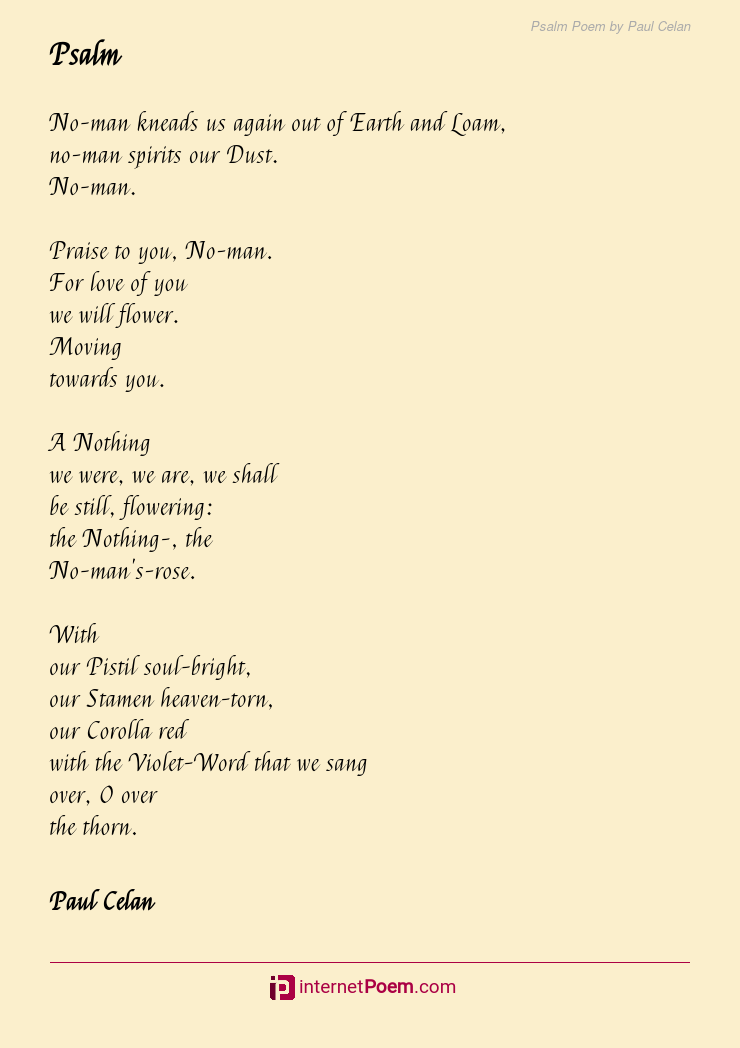
Psalm Poem by Paul Celan
No one kneads us again out of earth and clay. no-One summons our dust. No one. Blessed art thou, No One. In thy sight would. we bloom. In thy. spite . A nothing.
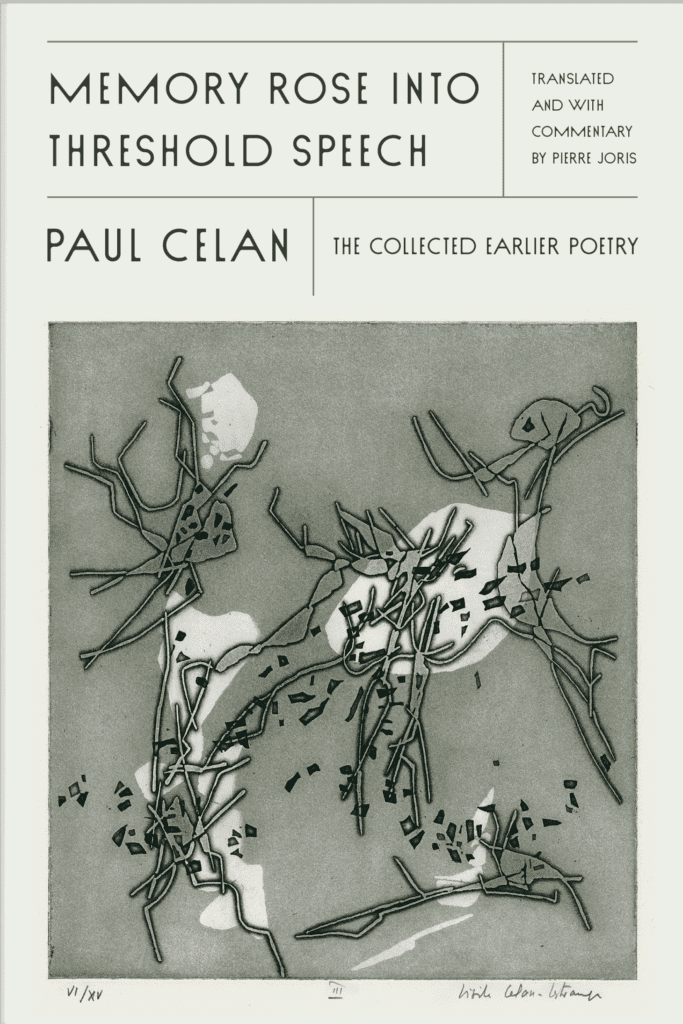
Paul Celan — “Psalm” Nomadics
Celan does, this magic prevails. Celan published Die Niemandsrose in 1963, with the "No-One's-Rose" of the title embedded in his poem "Psalm." Rich in historical and religious references, Celan's "Psalm" philosophically questions the meaning of human suffering without explicitly mentioning the Holocaust.
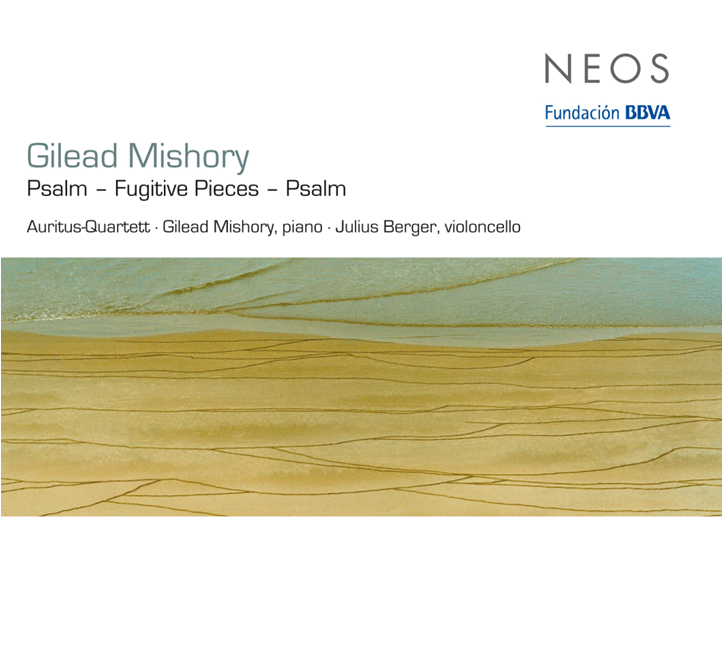
Psalm für Streichquartett nach Gedichten von Paul Celan
This essay offers a "Tawadian" translation of Paul Celan's poem "Psalm," particularly the neologisms in the final stanza, into Chinese characters. In particular, the translation of "Purpurwort" as "yurusu," a character that consists of the signs for "purple" and "word" but has the meaning of "forgiveness, amnesty.

Paul Celan. Buch von Klaus Reichert (Suhrkamp Verlag)
Psalm by Paul Antschel Start Free Trial Themes Analysis Questions & Answers Themes and Meanings PDF Cite Celan—an East European Jewish poet whose parents and close friends were killed by the.
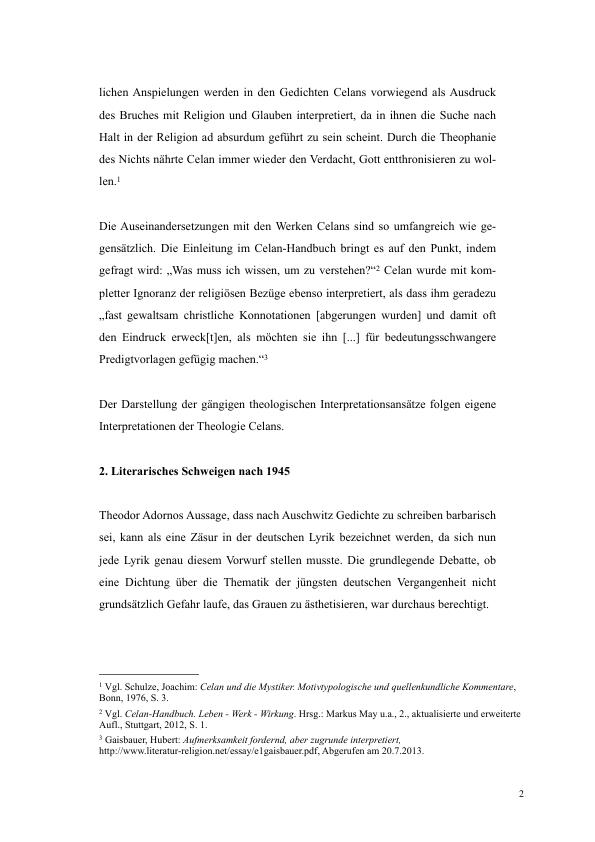
Paul Celan. Gedichtsanalyse Psalm und Mandorla GRIN
PSALM NoOne kneads us again of earth and clay, noOne conjures our dust. Noone. Praised be thou, NoOne. For your sake we want to flower. Toward you. A Nothing we were, we are, we will remain, flowering: the Nothing-, the NoOnesRose. With pistil soul-bright, stamen heaven-desolate, the corona red from the scarlet-word, that we sang above, O above

Paul Celan. Gedichtsanalyse Psalm und Mandorla em Promoção na Americanas
Paul Celan reading his poem 'Psalm' from 'Die Niemandsrose' (1963)Video: http://www.imdb.com/title/tt0054632/

Christoph Strack on Twitter "Paul Celan, Psalm (1963)…
Psalm By Paul Celan Translated by John Felstiner No one kneads us again out of earth and clay, no one incants our dust. No one. Blessèd art thou, No One. In thy sight would we bloom. In thy spite. A Nothing we were, are now, and ever shall be, blooming: the Nothing-, the No-One's-Rose. With our pistil soul-bright, our stamen heaven-waste,

Paul Celan Alchetron, The Free Social Encyclopedia
Paul Celan was born Paul Antschel in Czernovitz, Romania, to a German-speaking Jewish family. His surname was later spelled Ancel, and he eventually adopted the anagram Celan as his pen name. In 1938 Celan went to Paris to study medicine, but returned to Romania before the outbreak of World War II.

Paul Celan „Psalm" YouTube
Find and share the perfect poems. Stretto Paul Celan 1920 - 1970 translated by Pierre Joris * Displaced into the terrain with the unmistakable track: Grass, written asunder. The stones, white, with the stalks' shadows: Stop reading—look! Stop looking—go! Go, your hour has no sisters, you are— are at home. A wheel, slowly,
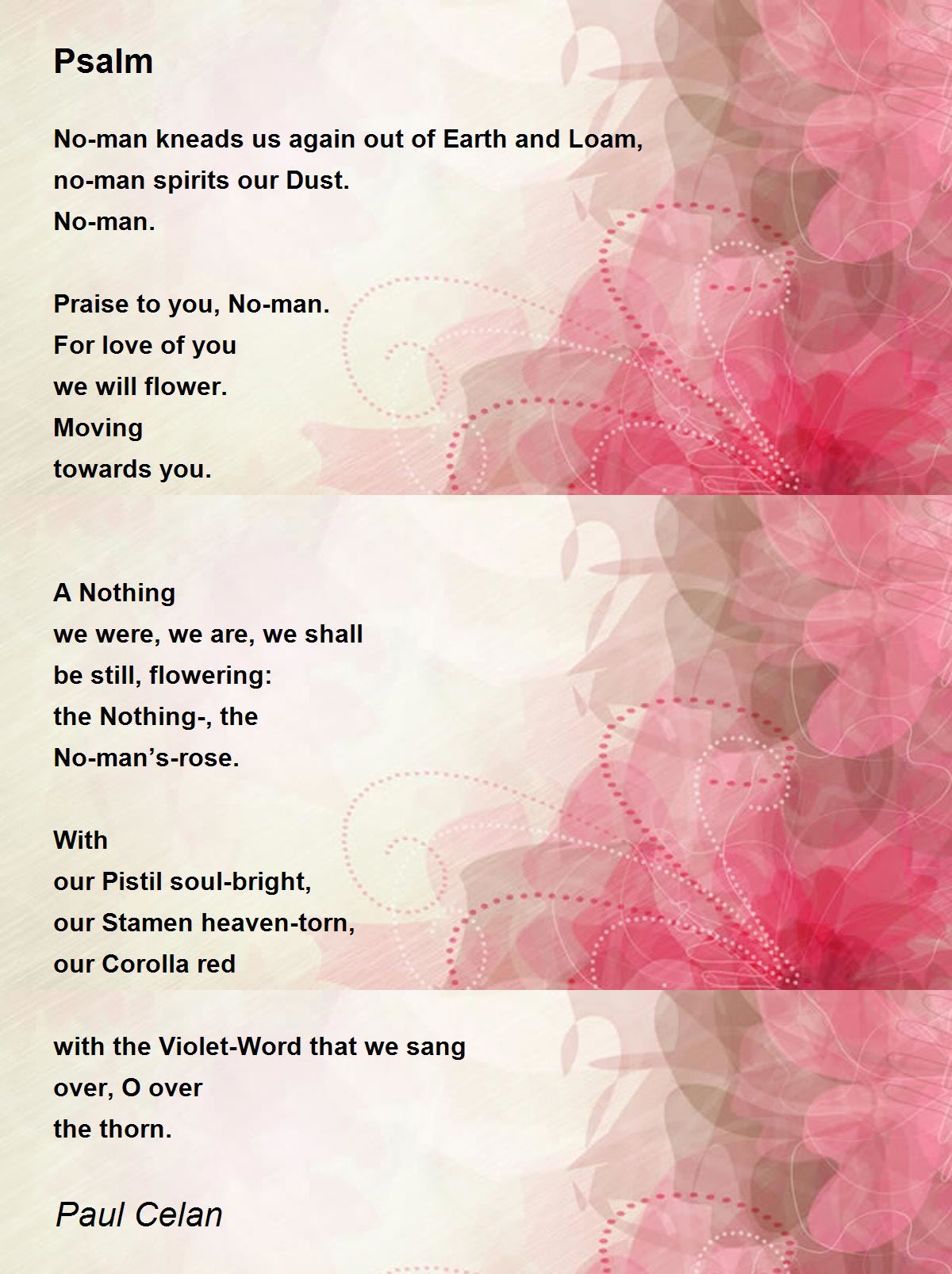
Psalm Poem by Paul Celan Poem Hunter
Paul Celan's poetry can be viewed as an expressive attempt to cope with the past—his personal past as well as that of the Jewish people.. culminating in the blasphemous "Psalm," with.

hiperrealizm FUGA ŚMIERCI
Paul Celan, the Last Psalmist was published in Psalms In/On Jerusalem on page 143.
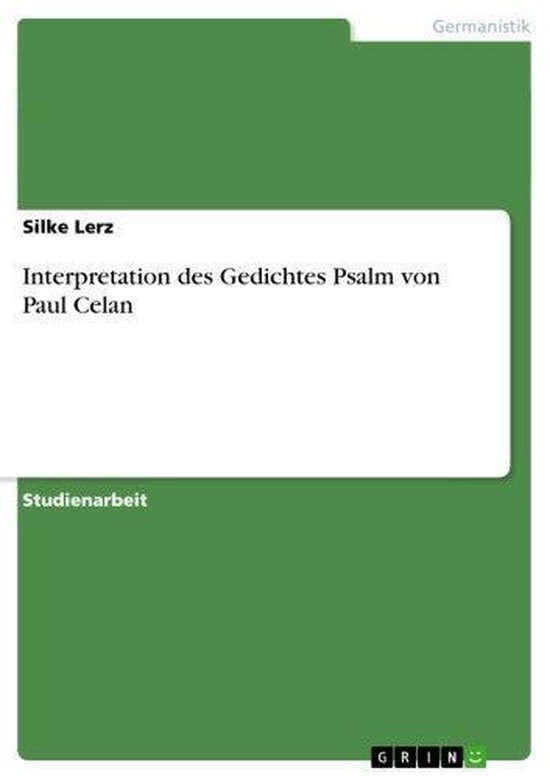
Interpretation des Gedichtes Psalm von Paul Celan (ebook), Silke Lerz 9783638168298...
Celan knew what it was to sing "above, O above/ the thorn." . . . "Psalm" draws not only on the image of God forming man out of clay in Genesis but also, most crucially, on Psalm 103:15: "As for man, his days are as grass: as a flower of the field, so he flourisheth.". To the beauty and brevity of that flourishing, Celan adds an.

«Psalm», de Paul Celan Salms
Born as Paul Antschel to a Jewish family in Czernowitz, Romania (now a part of Ukraine), Paul Celan became one of the major German-language poets of the post-World War II era. Much of Celan's writings are autobiographical, reflecting the personal anguish and turmoil inflicted upon Celan and his family during the years of Nazi occupation.
Paul Celan Psalm i inne wiersze Poznań Kup teraz na Allegro Lokalnie
From his iconic "Deathfugue," one of the first poems published about the Nazi camps and now recognized as a benchmark of twentieth-century European poetry, to cryptic later works such as the poem.